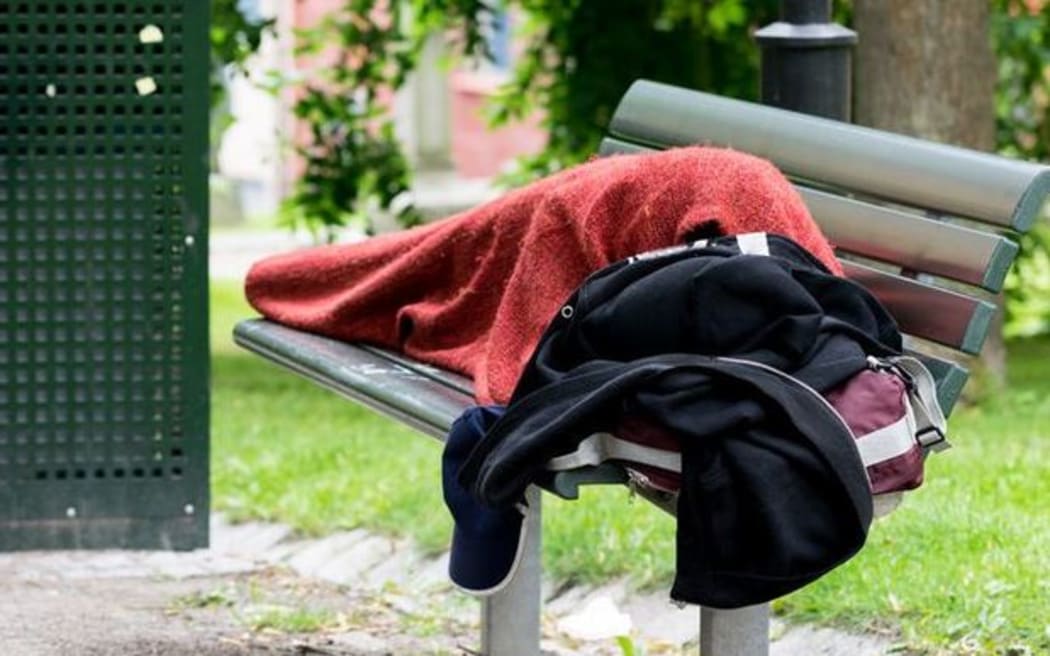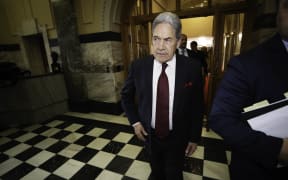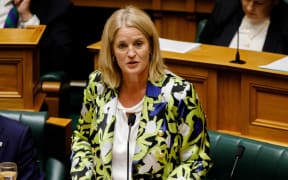
A crackdown on jobseekers will force some to choose between food and housing, welfare advocates say. File photo. Photo: 123rf
Welfare advocates are pleading with the government to back down from its crackdown on beneficiaries.
Social Development Minister Louise Upston has ordered the Ministry of Social Development to use the full force of sanctions to ensure those on the jobseeker benefit were actively looking for work.
Upston says remaining on the benefit has become the rational choice for some people because of a lack of consequences.
But a young beneficiary says the government has no understanding of the hardships they face.
Twenty-year-old Hārema briefly experienced homelessness in 2023. He is now on the jobseeker benefit, and is working with programmes which help him and other young people into stable homes and work.
Hārema said the government bringing the hammer down on people like him was out of touch.
"These guys don't have the problem of living in a stigmatised area where gang mentality is present, where poverty is normal, where drugs and alcohol was an everyday thing.
"These are the sorts of spaces that really affect young people and their ability to want to go and do something. Everything's so hard for them."
Hārema considered himself one of the lucky ones - just because he had a phone.
He said there were others on the street who had no means to get to interviews or training.
"It's easy for someone to say, 'just turn up, just turn up and go through a job interview process so that you can keep your benefit'," Hārema said, "but this young person has no idea, doesn't have a CV, doesn't have means of transport, doesn't have a whare, doesn't have a house. But we're gonna demand of you these things or risk you losing your benefit."
Beneficiary advocate Kay Brereton said that would leave them with a difficult choice.
"Probably it either makes them homeless or makes them foodless, because the benefit isn't enough for people to keep themselves housed and fed anyway.
"So you take half of that away and they've got to make a choice between food and housing," she said.
Brereton said it would do nothing to get them back into work, like the government hoped it would.
"A lot of people are on the benefit because of trauma. In fact, trauma is what gets us onto a benefit, something terrible has happened in our lives. Punishing people for being in a precarious position is not improving their position. It's just kicking them while they're down."
'I'm yet to meet one young person that just wants to be on the benefit'
Youth development organisation Kick Back director said the popular claim that young people liked to bludgeon off of social services was a myth.
"I have been serving young people who have needed access to welfare for over a decade now, and I'm yet to meet one young person that just wants to be on the benefit," he said.
But these people on Queen Street said the government's announcement was a welcome change to what they called a serious problem.
"Great. Awesome. I think that, if you're on that benefit, you're on the air to look for a job, not to sit at home doing nothing," one woman said.
"Yeah, that's what you gotta do," a man said, "You have to maintain things and you have to monitor them, otherwise things get out of hand and people try and get away with as much as they can."
"I'm sure it would be a good thing," another woman said, "you do hear on the radio from time to time about job seekers who don't really want a job, but they have to go for an interview and they need to turn it down at any rate. So they just continue on their welfare and they don't really want to change."
Social Development Minister Louise Upston said if beneficiaries failed to meet the requirements, their payments would be cut or suspended after warnings.
Getting off benefits, but not into employment
Meanwhile, an expert in business studies says chasing tax evaders, rather than targeting beneficiaries, would offer a better return on investment for the government.
Associate Professor Lisa Marriott, from the Victoria University Business School, has spent years studying the treatment of beneficiaries.
She told Checkpoint she could not see any good reason why sanctions would be applied to one part of the population only, "particularly when that group comprises those who have the least to start with".
She said while research did show that sanctions will probably get a relatively small number of people off benefits, it doesn't achieve the goal of getting people into paid employment.
"As a society, that's what we want - we want people to gain new skills, we want people to have higher earnings, improve their self-esteem, and those are all the benefits you get from being employed."
She said this was seen when similar moves were introduced in the UK more than a decade ago, with people getting off benefits, but not necessarily into paid employment, or being forced into low-paying jobs which left them financially worse off in the long term.






